Frequent persons on Vietnam's street signs
countries
140 names / 1003 streets
Trần Hưng Đạo
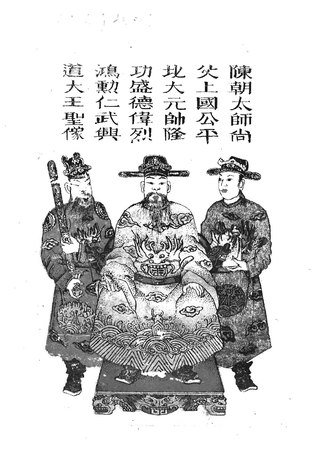 31
Trần Hưng Đạo, real name Trần Quốc Tuấn (陳國峻), also known as Grand Prince Hưng Đạo, was a Vietnamese royal prince, statesman and military commander of Đại Việt military forces during the Trần...
31
Trần Hưng Đạo, real name Trần Quốc Tuấn (陳國峻), also known as Grand Prince Hưng Đạo, was a Vietnamese royal prince, statesman and military commander of Đại Việt military forces during the Trần...
Hùng king
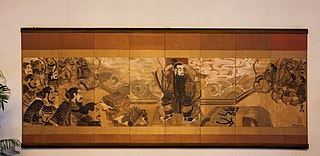 31
Hùng king is the title given to the ancient Vietnamese rulers of the Hồng Bàng period.
31
Hùng king is the title given to the ancient Vietnamese rulers of the Hồng Bàng period.
Quang Trung
 29
Emperor Quang Trung or Nguyễn Huệ, also known as Nguyễn Quang Bình, was the second emperor of the Tây Sơn dynasty, reigning from 1788 until 1792. He was also one of the most successful military...
29
Emperor Quang Trung or Nguyễn Huệ, also known as Nguyễn Quang Bình, was the second emperor of the Tây Sơn dynasty, reigning from 1788 until 1792. He was also one of the most successful military...
Trần Phú
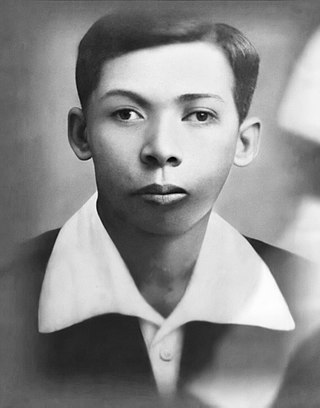 23
Trần Phú was a Vietnamese revolutionary and the first general secretary of the Indochinese Communist Party, later renamed the Communist Party of Vietnam.
23
Trần Phú was a Vietnamese revolutionary and the first general secretary of the Indochinese Communist Party, later renamed the Communist Party of Vietnam.
Lê Lợi
 21
Lê Lợi, also known by his temple name as Lê Thái Tổ (黎太祖) and by his pre-imperial title Bình Định vương, was a Vietnamese rebel leader who founded the Later Lê dynasty and became the first king of...
21
Lê Lợi, also known by his temple name as Lê Thái Tổ (黎太祖) and by his pre-imperial title Bình Định vương, was a Vietnamese rebel leader who founded the Later Lê dynasty and became the first king of...
Lê Duẩn
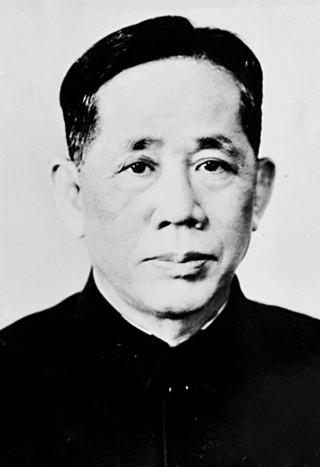 20
Lê Duẩn was a Vietnamese communist politician. He rose in the party hierarchy in the late 1950s and became General Secretary of the Central Committee of the Communist Party of Vietnam (VCP) at the...
20
Lê Duẩn was a Vietnamese communist politician. He rose in the party hierarchy in the late 1950s and became General Secretary of the Central Committee of the Communist Party of Vietnam (VCP) at the...
Ho Chi Minh
 19
Hồ Chí Minh, colloquially known as Uncle Ho or just Uncle (Bác), and by other aliases and sobriquets, was a Vietnamese communist revolutionary, nationalist, and politician. He served as prime...
19
Hồ Chí Minh, colloquially known as Uncle Ho or just Uncle (Bác), and by other aliases and sobriquets, was a Vietnamese communist revolutionary, nationalist, and politician. He served as prime...
Trưng sisters
 18
The Trưng sisters were Luoyue military leaders who ruled for three years after commanding a rebellion of Luoyue tribes and other tribes in AD 40 against the first Chinese domination of Vietnam. They...
18
The Trưng sisters were Luoyue military leaders who ruled for three years after commanding a rebellion of Luoyue tribes and other tribes in AD 40 against the first Chinese domination of Vietnam. They...
Nguyễn Trãi
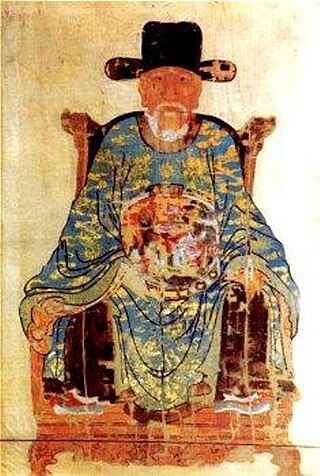 17
Nguyễn Trãi (阮廌), pen name Ức Trai (抑齋); (1380–1442) was an illustrious Vietnamese Confucian scholar, a noted poet, a skilled politician and a master strategist. He was at times attributed with being...
17
Nguyễn Trãi (阮廌), pen name Ức Trai (抑齋); (1380–1442) was an illustrious Vietnamese Confucian scholar, a noted poet, a skilled politician and a master strategist. He was at times attributed with being...
Nguyễn Thị Minh Khai
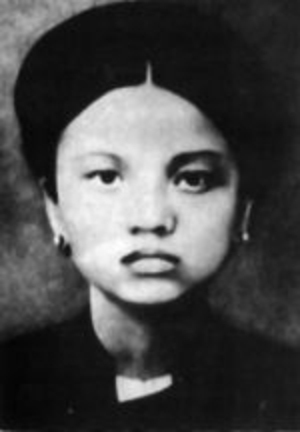 17
Nguyễn Thị Minh Khai was a Vietnamese revolutionary and a leader of the Indochinese Communist Party during the 1930s.
17
Nguyễn Thị Minh Khai was a Vietnamese revolutionary and a leader of the Indochinese Communist Party during the 1930s.
Phạm Văn Đồng
 17
Phạm Văn Đồng was a Vietnamese politician who served as Prime Minister of North Vietnam from 1955 to 1976. He later served as Prime Minister of Vietnam, following reunification of North and South...
17
Phạm Văn Đồng was a Vietnamese politician who served as Prime Minister of North Vietnam from 1955 to 1976. He later served as Prime Minister of Vietnam, following reunification of North and South...
Nguyễn Đình Chiểu
 16
Nguyễn Đình Chiểu was a Vietnamese poet who was known for his nationalist and anti-colonial writings against the French colonization of Cochinchina, the European name for the southern part of Vietnam.
16
Nguyễn Đình Chiểu was a Vietnamese poet who was known for his nationalist and anti-colonial writings against the French colonization of Cochinchina, the European name for the southern part of Vietnam.
Lý Thường Kiệt
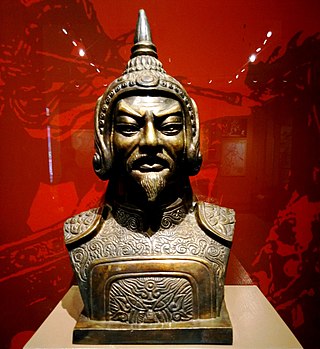 16
Lý Thường Kiệt, real name Ngô Tuấn, was a Vietnamese general and admiral of the Lý dynasty. He served as an official through the reign of Lý Thái Tông, Lý Thánh Tông and Lý Nhân Tông and was a...
16
Lý Thường Kiệt, real name Ngô Tuấn, was a Vietnamese general and admiral of the Lý dynasty. He served as an official through the reign of Lý Thái Tông, Lý Thánh Tông and Lý Nhân Tông and was a...
Phan Đình Phùng
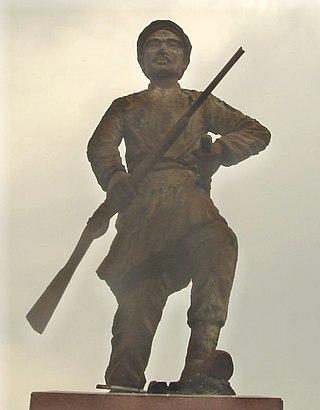 16
Phan Đình Phùng was a Vietnamese revolutionary who led rebel armies against French colonial forces in Vietnam. He was the most prominent of the Confucian court scholars involved in anti-French...
16
Phan Đình Phùng was a Vietnamese revolutionary who led rebel armies against French colonial forces in Vietnam. He was the most prominent of the Confucian court scholars involved in anti-French...
Lê Hồng Phong
 15
Lê Hồng Phong was the second leader of the Communist Party of Vietnam (CPV); he led the party through the office of General Secretary of the Overseas Executive Committee of the Communist Party of...
15
Lê Hồng Phong was the second leader of the Communist Party of Vietnam (CPV); he led the party through the office of General Secretary of the Overseas Executive Committee of the Communist Party of...
Nguyễn Thái Học
 14
Nguyễn Thái Học was a Vietnamese revolutionary and independent activist who was the founding leader of the Việt Nam Quốc Dân Đảng, namely the Vietnamese Nationalist Party. He was captured and...
14
Nguyễn Thái Học was a Vietnamese revolutionary and independent activist who was the founding leader of the Việt Nam Quốc Dân Đảng, namely the Vietnamese Nationalist Party. He was captured and...
Nguyễn Công Trứ
 14
Nguyễn Công Trứ (阮公著) also Hi Văn was a Vietnamese poet and scholar.
14
Nguyễn Công Trứ (阮公著) also Hi Văn was a Vietnamese poet and scholar.
Nguyễn Văn Cừ (revolutionary)
 13
Nguyễn Văn Cừ was a Vietnamese revolutionary, a descendant of Nguyễn Trãi. He served as the fourth General Secretary of the Central Committee of the Communist Party of Vietnam (CPV) 30 March 1938 – 9...
13
Nguyễn Văn Cừ was a Vietnamese revolutionary, a descendant of Nguyễn Trãi. He served as the fourth General Secretary of the Central Committee of the Communist Party of Vietnam (CPV) 30 March 1938 – 9...
Võ Thị Sáu
 12
Võ Thị Sáu was a Vietnamese schoolgirl who fought as a guerilla against the French occupiers of Vietnam, then part of French Indochina. She was captured, tried, convicted, and executed by the French...
12
Võ Thị Sáu was a Vietnamese schoolgirl who fought as a guerilla against the French occupiers of Vietnam, then part of French Indochina. She was captured, tried, convicted, and executed by the French...
Nguyễn Chí Thanh
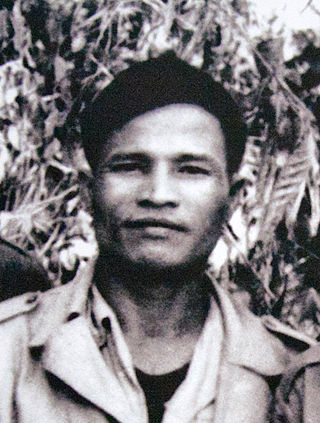 12
Nguyễn Chí Thanh was a General in the North Vietnamese Vietnam People's Army and former North Vietnamese politician. Nguyễn Chí Thanh was born in Thừa Thiên Province in Central Vietnam to a peasant...
12
Nguyễn Chí Thanh was a General in the North Vietnamese Vietnam People's Army and former North Vietnamese politician. Nguyễn Chí Thanh was born in Thừa Thiên Province in Central Vietnam to a peasant...
Nguyễn Du
 12
Nguyễn Du, courtesy name Tố Như and art name Thanh Hiên, is a celebrated Vietnamese poet and musician. He is most known for writing the epic poem The Tale of Kiều.
12
Nguyễn Du, courtesy name Tố Như and art name Thanh Hiên, is a celebrated Vietnamese poet and musician. He is most known for writing the epic poem The Tale of Kiều.
Hoàng Văn Thụ
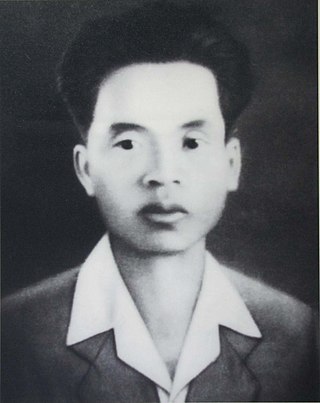 11
Hoàng Văn Thụ là nhà lãnh đạo cao cấp của Trung ương Đảng Cộng sản Đông Dương, người có đóng góp lớn vào phong trào cộng sản Việt Nam và là nhà thơ cách mạng Việt Nam trước Cách mạng tháng Tám năm...
11
Hoàng Văn Thụ là nhà lãnh đạo cao cấp của Trung ương Đảng Cộng sản Đông Dương, người có đóng góp lớn vào phong trào cộng sản Việt Nam và là nhà thơ cách mạng Việt Nam trước Cách mạng tháng Tám năm...
Ngô Quyền
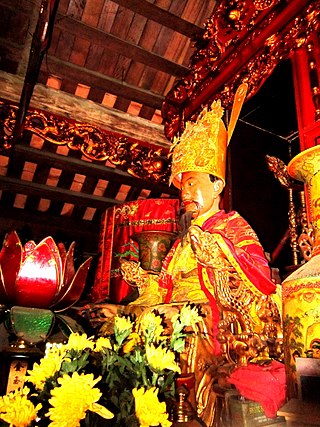 10
Ngô Quyền, often referred to as Tiền Ngô Vương, was a warlord who later became the founding king of the Ngô dynasty of Vietnam. He reigned from 939 to 944. In 938, he defeated the Southern Han...
10
Ngô Quyền, often referred to as Tiền Ngô Vương, was a warlord who later became the founding king of the Ngô dynasty of Vietnam. He reigned from 939 to 944. In 938, he defeated the Southern Han...
Lê Thánh Tông
 10
Lê Thánh Tông, personal name Lê Hạo, temple name Thánh Tông, courtesy name Tư Thành, was an emperor of Đại Việt, reigning from 1460 to 1497, the fifth and the longest-reigning emperor of the Later Lê...
10
Lê Thánh Tông, personal name Lê Hạo, temple name Thánh Tông, courtesy name Tư Thành, was an emperor of Đại Việt, reigning from 1460 to 1497, the fifth and the longest-reigning emperor of the Later Lê...
Trương Định
 10
Trương Định, sometimes known as Trương Công Định, was a mandarin (scholar-official) in the Nguyễn dynasty of Vietnam under Emperor Tự Đức. He is best known for leading a guerrilla army in southern...
10
Trương Định, sometimes known as Trương Công Định, was a mandarin (scholar-official) in the Nguyễn dynasty of Vietnam under Emperor Tự Đức. He is best known for leading a guerrilla army in southern...
Tôn Đức Thắng
 10
Tôn Đức Thắng was the second president of Vietnam under the leadership of General Secretary Lê Duẩn. The position of president is ceremonial and Tôn was never a major policymaker or even a member of...
10
Tôn Đức Thắng was the second president of Vietnam under the leadership of General Secretary Lê Duẩn. The position of president is ceremonial and Tôn was never a major policymaker or even a member of...
Võ Nguyên Giáp
 10
Võ Nguyên Giáp was a general of the People's Army of Vietnam (PAVN), communist revolutionary and politician. Regarded as one of the greatest military strategists of the 20th century, Giáp led...
10
Võ Nguyên Giáp was a general of the People's Army of Vietnam (PAVN), communist revolutionary and politician. Regarded as one of the greatest military strategists of the 20th century, Giáp led...
Chu Văn An
 10
Chu Văn An was a Confucian, teacher, physician, and high-ranking mandarin of the Trần dynasty in Đại Việt. His courtesy name was Linh Triệt (靈徹), while his art name was Tiều Ẩn (樵隱). He was later...
10
Chu Văn An was a Confucian, teacher, physician, and high-ranking mandarin of the Trần dynasty in Đại Việt. His courtesy name was Linh Triệt (靈徹), while his art name was Tiều Ẩn (樵隱). He was later...
Trần Quang Khải
 9
Prince Chiêu Minh Trần Quang Khải (1241–1294) was the third son of Trần Thái Tông, first emperor of the Trần dynasty of Vietnam. Being the younger brother of the Emperor Trần Thánh Tông and holding...
9
Prince Chiêu Minh Trần Quang Khải (1241–1294) was the third son of Trần Thái Tông, first emperor of the Trần dynasty of Vietnam. Being the younger brother of the Emperor Trần Thánh Tông and holding...
Phan Bội Châu
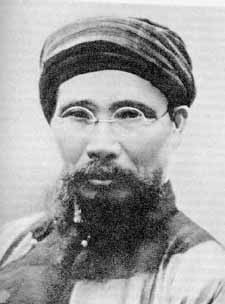 9
Phan Bội Châu, born Phan Văn San, courtesy name Hải Thụ, was a pioneer of Vietnamese 20th century nationalism. In 1904, he formed a revolutionary organization called Duy Tân Hội. From 1905 to 1908,...
9
Phan Bội Châu, born Phan Văn San, courtesy name Hải Thụ, was a pioneer of Vietnamese 20th century nationalism. In 1904, he formed a revolutionary organization called Duy Tân Hội. From 1905 to 1908,...
Nguyễn Tri Phương
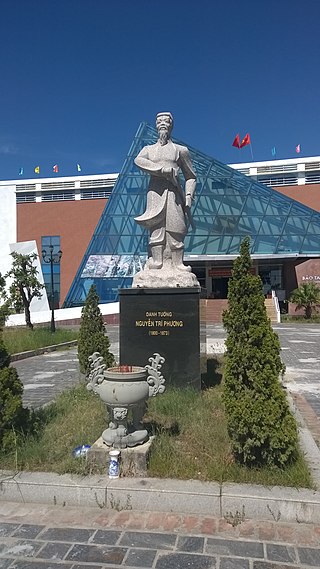 9
Nguyễn Tri Phương, born Nguyễn Văn Chương, was a Nguyễn dynasty mandarin and military commander. He commanded armies against the French conquest of Vietnam at the Siege of Tourane, the Siege of...
9
Nguyễn Tri Phương, born Nguyễn Văn Chương, was a Nguyễn dynasty mandarin and military commander. He commanded armies against the French conquest of Vietnam at the Siege of Tourane, the Siege of...
Nguyễn Lương Bằng
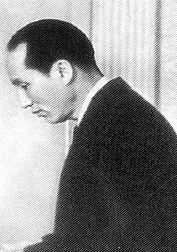 9
Nguyễn Lương Bằng was a Vietnamese revolutionary activist and politician. He held the post as Vice President of Vietnam from 1969 to 1979, and General Director of Vietnam National Bank. He was North...
9
Nguyễn Lương Bằng was a Vietnamese revolutionary activist and politician. He held the post as Vice President of Vietnam from 1969 to 1979, and General Director of Vietnam National Bank. He was North...
Phan Châu Trinh
 9
Phan Châu Trinh, courtesy name Tử Cán (梓幹), pen name Tây Hồ (西湖) or Hi Mã (希馬), was an early 20th-century Vietnamese nationalist. He sought to end France's colonial occupation of Vietnam. His method...
9
Phan Châu Trinh, courtesy name Tử Cán (梓幹), pen name Tây Hồ (西湖) or Hi Mã (希馬), was an early 20th-century Vietnamese nationalist. He sought to end France's colonial occupation of Vietnam. His method...
Nguyễn Văn Linh
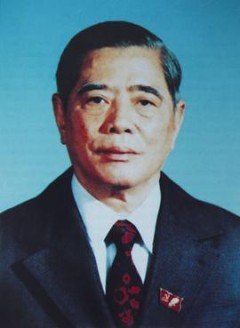 9
Nguyễn Văn Linh was a Vietnamese revolutionary and politician. Nguyễn Văn Linh was the general secretary of the Communist Party of Vietnam from 1986 to 1991 and a political leader of the Vietcong...
9
Nguyễn Văn Linh was a Vietnamese revolutionary and politician. Nguyễn Văn Linh was the general secretary of the Communist Party of Vietnam from 1986 to 1991 and a political leader of the Vietcong...
Phạm Ngọc Thạch
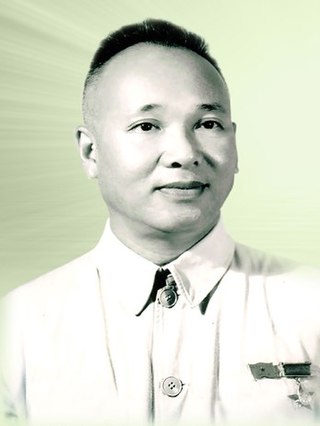 9
Phạm Ngọc Thạch (1909–1968) là một nhà khoa học y khoa Việt Nam, giáo sư, tiến sĩ khoa học, nguyên Bộ trưởng Bộ Y tế trong Chính phủ Việt Nam Dân chủ Cộng hòa. Ông được Nhà nước Cộng hòa xã hội chủ...
9
Phạm Ngọc Thạch (1909–1968) là một nhà khoa học y khoa Việt Nam, giáo sư, tiến sĩ khoa học, nguyên Bộ trưởng Bộ Y tế trong Chính phủ Việt Nam Dân chủ Cộng hòa. Ông được Nhà nước Cộng hòa xã hội chủ...
An Dương Vương
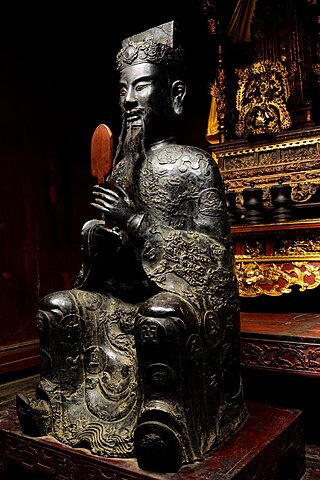 9
An Dương Vương, personal name Thục Phán, was the founding king and the only ruler of the kingdom of Âu Lạc, an ancient state centered in the Red River Delta. As the leader of the Âu Việt tribes, he...
9
An Dương Vương, personal name Thục Phán, was the founding king and the only ruler of the kingdom of Âu Lạc, an ancient state centered in the Red River Delta. As the leader of the Âu Việt tribes, he...
Huỳnh Thúc Kháng
 8
Huỳnh Thúc Kháng, courtesy name Giới Sanh, pen name Mính Viên, also known as Cụ Huỳnh, was a Vietnamese anti-colonial activist, statesman and journalist, most notably serving as Acting President of...
8
Huỳnh Thúc Kháng, courtesy name Giới Sanh, pen name Mính Viên, also known as Cụ Huỳnh, was a Vietnamese anti-colonial activist, statesman and journalist, most notably serving as Acting President of...
Lý Thái Tổ
 8
Lý Thái Tổ, personal name Lý Công Uẩn, temple name Thái Tổ, was a founding emperor of Lý dynasty and the 6th ruler of Đại Việt; he reigned from 1009 to 1028.
8
Lý Thái Tổ, personal name Lý Công Uẩn, temple name Thái Tổ, was a founding emperor of Lý dynasty and the 6th ruler of Đại Việt; he reigned from 1009 to 1028.
Hồ Tùng Mậu
 8
Hồ Tùng Mậu was a revolutionary activist and politician in Vietnam. He was a member of both the Communist Party of China and the Communist Party of Vietnam, a member of the Central Central Committee...
8
Hồ Tùng Mậu was a revolutionary activist and politician in Vietnam. He was a member of both the Communist Party of China and the Communist Party of Vietnam, a member of the Central Central Committee...
Lê Hoàn
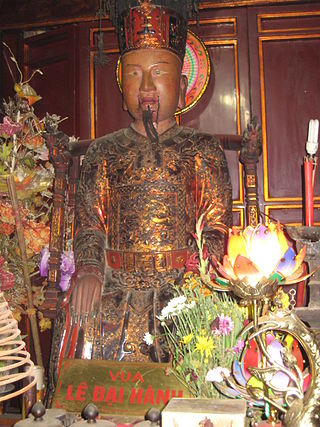 8
Lê Hoàn, posthumously title Lê Đại Hành, was the third ruler of Đại Việt kingdom, ruling from 981 to 1005, and founder of the Early Lê dynasty. He first served as the generalissimo commanding a...
8
Lê Hoàn, posthumously title Lê Đại Hành, was the third ruler of Đại Việt kingdom, ruling from 981 to 1005, and founder of the Early Lê dynasty. He first served as the generalissimo commanding a...
Lý Tự Trọng
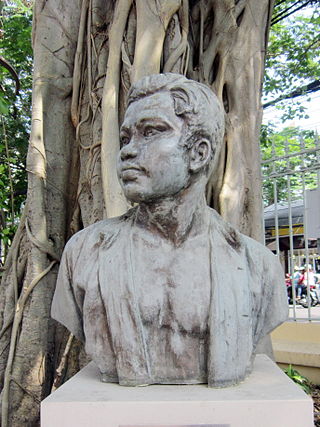 8
Lý Tự Trọng was a Vietnamese revolutionary, executed by the French when he was only 17 years old. He is considered to be a revolutionary martyr. In 2010, his remains were identified in District 10,...
8
Lý Tự Trọng was a Vietnamese revolutionary, executed by the French when he was only 17 years old. He is considered to be a revolutionary martyr. In 2010, his remains were identified in District 10,...
Nguyễn Hữu Cảnh
 8
Nguyễn Hữu Cảnh, also known as Nguyễn Hữu Kính and his noble rank Lễ Thành Hầu, was a high-ranking general of Lord Nguyễn Phúc Chu. His military expeditions into the Mekong Delta placed the region...
8
Nguyễn Hữu Cảnh, also known as Nguyễn Hữu Kính and his noble rank Lễ Thành Hầu, was a high-ranking general of Lord Nguyễn Phúc Chu. His military expeditions into the Mekong Delta placed the region...
Hoàng Hoa Thám
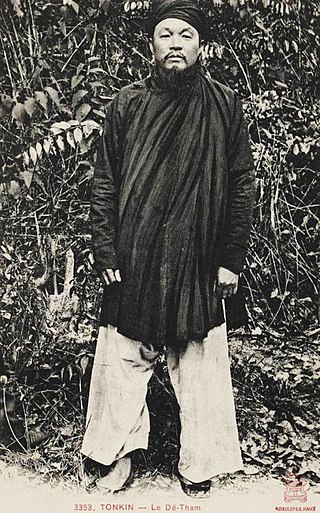 8
Hoàng Hoa Thám also known as Commander Thám, was a Vietnamese feudal lord of Yên Thế, the leader of the Yên Thế Insurrection that held out against French protectorate in Tonkin for 30 years.
8
Hoàng Hoa Thám also known as Commander Thám, was a Vietnamese feudal lord of Yên Thế, the leader of the Yên Thế Insurrection that held out against French protectorate in Tonkin for 30 years.
Hoàng Diệu
 8
Hoàng Diệu, born Hoàng Kim Tích (黃金錫), courtesy name Quang Viễn, was a Nguyễn dynasty Governor-general of Hà - Ninh, who suicided after failure in protecting Hà Nội citadel.
8
Hoàng Diệu, born Hoàng Kim Tích (黃金錫), courtesy name Quang Viễn, was a Nguyễn dynasty Governor-general of Hà - Ninh, who suicided after failure in protecting Hà Nội citadel.
Phan Xích Long
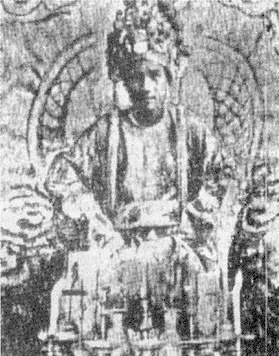 7
Phan Xích Long, also known as Hồng Long, born Phan Phát Sanh, was a Vietnamese mystic and geomancer who raised an unsuccessful uprising against French rule in Cochinchina from 1913 to 1916. He...
7
Phan Xích Long, also known as Hồng Long, born Phan Phát Sanh, was a Vietnamese mystic and geomancer who raised an unsuccessful uprising against French rule in Cochinchina from 1913 to 1916. He...
Lady Triệu
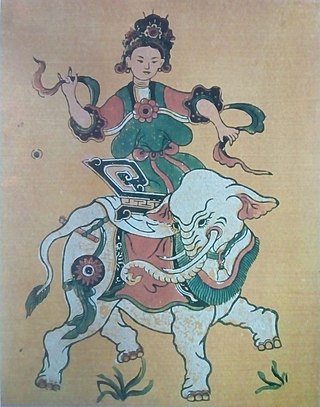 7
Lady Triệu or Triệu Ẩu was a female warrior in 3rd century Vietnam who managed, for a time, to resist the rule of the Chinese Eastern Wu dynasty. She is also called Triệu Thị Trinh, although her...
7
Lady Triệu or Triệu Ẩu was a female warrior in 3rd century Vietnam who managed, for a time, to resist the rule of the Chinese Eastern Wu dynasty. She is also called Triệu Thị Trinh, although her...
Đinh Bộ Lĩnh
 7
Đinh Bộ Lĩnh, real name allegedly Đinh Hoàn, was the founding emperor of the short-lived Đinh dynasty of Vietnam, after declaring its independence from the Chinese Southern Han dynasty. He was a...
7
Đinh Bộ Lĩnh, real name allegedly Đinh Hoàn, was the founding emperor of the short-lived Đinh dynasty of Vietnam, after declaring its independence from the Chinese Southern Han dynasty. He was a...
Bùi Thị Xuân
 7
Bùi Thị Xuân was a Vietnamese female general during the Tây Sơn era.
7
Bùi Thị Xuân was a Vietnamese female general during the Tây Sơn era.
Nguyễn An Ninh
 7
Nguyễn An Ninh was a radical Vietnamese political journalist and publicist in French colonial Cochinchina. An independent and charismatic figure, Nguyen An Ninh was able to conciliate between...
7
Nguyễn An Ninh was a radical Vietnamese political journalist and publicist in French colonial Cochinchina. An independent and charismatic figure, Nguyen An Ninh was able to conciliate between...
Trường Chinh
 7
Trường Chinh was a Vietnamese communist political leader, revolutionary and theoretician. He was one of the key figures of Vietnamese politics and the important Vietnamese leaders for over 40 years....
7
Trường Chinh was a Vietnamese communist political leader, revolutionary and theoretician. He was one of the key figures of Vietnamese politics and the important Vietnamese leaders for over 40 years....
Võ Văn Kiệt
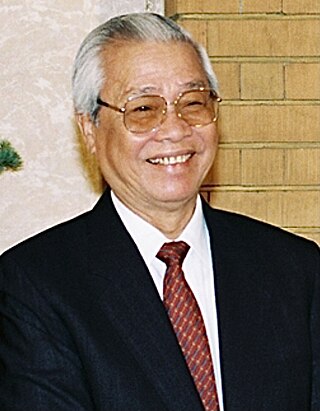 7
Võ Văn Kiệt real name is Phan Văn Hòa, was a Vietnamese politician and economic reformer who served as the Prime Minister of Vietnam from 1991 to 1997. A well regarded Vietnamese revolutionary and...
7
Võ Văn Kiệt real name is Phan Văn Hòa, was a Vietnamese politician and economic reformer who served as the Prime Minister of Vietnam from 1991 to 1997. A well regarded Vietnamese revolutionary and...
Nguyễn Thiện Thuật
 7
Nguyễn Thiện Thuật, courtesy name Mạnh Hiếu, was a Vietnamese revolutionary leader, who commanded armed forces during the anti-colonial struggle.
7
Nguyễn Thiện Thuật, courtesy name Mạnh Hiếu, was a Vietnamese revolutionary leader, who commanded armed forces during the anti-colonial struggle.
Trần Quốc Toản
 7
Marquis Hoài Văn, better known as Trần Quốc Toản, born 1267, was a marquis of the Trần Dynasty who was well known for his active role in the second war of resistance of Đại Việt against the Mongol...
7
Marquis Hoài Văn, better known as Trần Quốc Toản, born 1267, was a marquis of the Trần Dynasty who was well known for his active role in the second war of resistance of Đại Việt against the Mongol...
Hồng Hà (nhà báo)
 6
Hồng Hà (1928–2011) là một nhà báo và một chính trị gia Việt Nam. Ông từng là Ủy viên Ban Chấp hành Trung ương Đảng Cộng sản Việt Nam khóa V, VI, VII; Bí thư Ban Chấp hành Trung ương Đảng Cộng sản...
6
Hồng Hà (1928–2011) là một nhà báo và một chính trị gia Việt Nam. Ông từng là Ủy viên Ban Chấp hành Trung ương Đảng Cộng sản Việt Nam khóa V, VI, VII; Bí thư Ban Chấp hành Trung ương Đảng Cộng sản...
Phạm Ngũ Lão
 6
Phạm Ngũ Lão was a general of the Trần Dynasty during the reigns of three successive emperors Nhân Tông, Anh Tông, and Minh Tông. His talent was noticed by Prince Hưng Đạo Trần Quốc Tuấn who married...
6
Phạm Ngũ Lão was a general of the Trần Dynasty during the reigns of three successive emperors Nhân Tông, Anh Tông, and Minh Tông. His talent was noticed by Prince Hưng Đạo Trần Quốc Tuấn who married...
Lê Đức Thọ
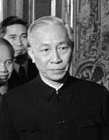 6
Lê Đức Thọ, born Phan Đình Khải in Nam Dinh Province, was a Vietnamese revolutionary general, diplomat, and politician. He was the first Asian to be awarded the Nobel Peace Prize, jointly with United...
6
Lê Đức Thọ, born Phan Đình Khải in Nam Dinh Province, was a Vietnamese revolutionary general, diplomat, and politician. He was the first Asian to be awarded the Nobel Peace Prize, jointly with United...
Nguyễn Hoàng
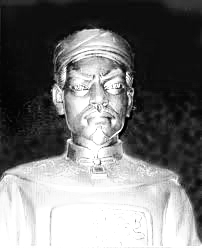 6
Nguyễn Hoàng was the first of the Nguyễn lords who ruled the southern provinces of Vietnam between 1558 and 1613, from a series of cities: Ai Tu (1558–70), Tra Bat (1570–1600), and Dinh Cat (1600–13).
6
Nguyễn Hoàng was the first of the Nguyễn lords who ruled the southern provinces of Vietnam between 1558 and 1613, from a series of cities: Ai Tu (1558–70), Tra Bat (1570–1600), and Dinh Cat (1600–13).
Ngô Gia Tự
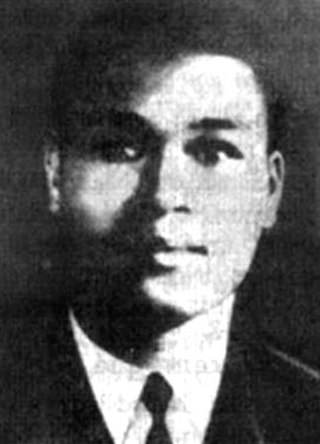 6
Ngô Gia Tự là một đảng viên đảng Cộng sản Việt Nam. Ông sinh tại làng Tam Sơn, huyện Tiên Sơn, tỉnh Bắc Ninh. Năm 1927, ông tham gia lớp huấn luyện chính trị do Nguyễn Ái Quốc tổ chức tại Quảng Châu,...
6
Ngô Gia Tự là một đảng viên đảng Cộng sản Việt Nam. Ông sinh tại làng Tam Sơn, huyện Tiên Sơn, tỉnh Bắc Ninh. Năm 1927, ông tham gia lớp huấn luyện chính trị do Nguyễn Ái Quốc tổ chức tại Quảng Châu,...
Nguyễn Đức Cảnh
 6
Nguyễn Đức Cảnh là một nhà hoạt động cách mạng Việt Nam. Ông là Bí thư đầu tiên của Thành ủy Hải Phòng và là Tổng biên tập đầu tiên của báo Lao động.
6
Nguyễn Đức Cảnh là một nhà hoạt động cách mạng Việt Nam. Ông là Bí thư đầu tiên của Thành ủy Hải Phòng và là Tổng biên tập đầu tiên của báo Lao động.
Thành Thái
 6
Thành Thái born Nguyễn Phúc Bửu Lân (阮福寶嶙), was the son of Emperor Dục Đức and Empress Dowager Từ Minh. He reigned as emperor for 18 years, from 1889 to 1907. Thành Thái was one of the three...
6
Thành Thái born Nguyễn Phúc Bửu Lân (阮福寶嶙), was the son of Emperor Dục Đức and Empress Dowager Từ Minh. He reigned as emperor for 18 years, from 1889 to 1907. Thành Thái was one of the three...
Nguyễn Trường Tộ
 6
Nguyễn Trường Tộ was a Roman Catholic scholar and reformer during the reign of Tự Đức of the Nguyễn dynasty, the last sovereign Emperor of Vietnam under which the French colonial forces colonized the...
6
Nguyễn Trường Tộ was a Roman Catholic scholar and reformer during the reign of Tự Đức of the Nguyễn dynasty, the last sovereign Emperor of Vietnam under which the French colonial forces colonized the...
Trần Quang Diệu
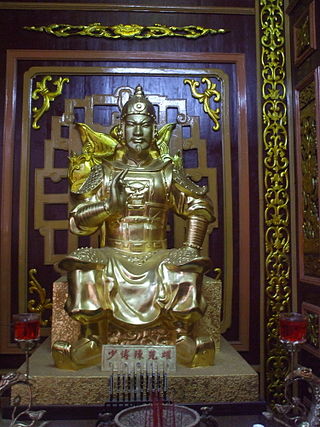 6
Trần Quang Diệu, also called Nguyễn Quang Diệu, was a general of Tây Sơn dynasty, Vietnam.
6
Trần Quang Diệu, also called Nguyễn Quang Diệu, was a general of Tây Sơn dynasty, Vietnam.
Thái Phiên
 6
Thái Phiên (1882–1916), was a Vietnamese scholar and revolutionary from Quảng Nam Province, also known by the alias Nam Xương. He was an associate of Phan Bội Châu, and was involved in both the...
6
Thái Phiên (1882–1916), was a Vietnamese scholar and revolutionary from Quảng Nam Province, also known by the alias Nam Xương. He was an associate of Phan Bội Châu, and was involved in both the...
Nguyễn Khuyến
 6
Nguyễn Thắng, pen name Nguyễn Khuyến, was a Vietnamese Ruist scholar, poet and teacher living in the 19th century.
6
Nguyễn Thắng, pen name Nguyễn Khuyến, was a Vietnamese Ruist scholar, poet and teacher living in the 19th century.
Nguyễn Thị Định
 6
Madame Nguyễn Thị Định was the first female general of the Vietnam People's Army during the Vietnam War and the first female Vice President of Vietnam. Her role in the war was as National Liberation...
6
Madame Nguyễn Thị Định was the first female general of the Vietnam People's Army during the Vietnam War and the first female Vice President of Vietnam. Her role in the war was as National Liberation...
Lê Quý Đôn
 6
Lê Quý Đôn (chữ Hán:, né Lê Danh Phương, on his pen name is Doãn Hậu 允厚, and Quế Đường 桂堂 was an 18th-century Vietnamese poet, encyclopedist, and government official. His pseudonym was Quế - Đường....
6
Lê Quý Đôn (chữ Hán:, né Lê Danh Phương, on his pen name is Doãn Hậu 允厚, and Quế Đường 桂堂 was an 18th-century Vietnamese poet, encyclopedist, and government official. His pseudonym was Quế - Đường....
Nguyễn Thuyên
 5
Nguyễn Thuyên or Hàn Thuyên was a 13th-century Vietnamese official and writer. According to Đại Việt sử ký toàn thư, in 1282, he composed a piece of writing, throwing it into the Red River to chase...
5
Nguyễn Thuyên or Hàn Thuyên was a 13th-century Vietnamese official and writer. According to Đại Việt sử ký toàn thư, in 1282, he composed a piece of writing, throwing it into the Red River to chase...
Vạn Hạnh
 5
Vạn Hạnh was a Vietnamese Thiền Buddhist monk. He was well known as the most important teacher, protector, and supporter of Lý Thái Tổ, the first emperor of the Lý dynasty.
5
Vạn Hạnh was a Vietnamese Thiền Buddhist monk. He was well known as the most important teacher, protector, and supporter of Lý Thái Tổ, the first emperor of the Lý dynasty.
Phan Văn Trị
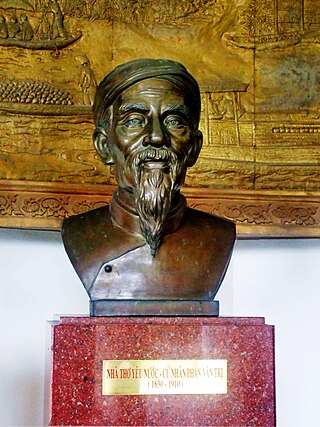 5
Phan Văn Trị ; còn gọi là Cử Trị là một nhà thơ Việt Nam trong thời kỳ đầu kháng Pháp của dân tộc Việt.
5
Phan Văn Trị ; còn gọi là Cử Trị là một nhà thơ Việt Nam trong thời kỳ đầu kháng Pháp của dân tộc Việt.
Nguyễn Văn Trỗi
 5
Nguyễn Văn Trỗi was a Vietnamese revolutionary and member of the Việt Cộng. He gained notoriety after being captured by South Vietnamese forces while trying to assassinate United States Secretary of...
5
Nguyễn Văn Trỗi was a Vietnamese revolutionary and member of the Việt Cộng. He gained notoriety after being captured by South Vietnamese forces while trying to assassinate United States Secretary of...
Hoàng Quốc Việt
 5
Hoàng Quốc Việt (1905–1992) là một chính khách, đảm nhiệm các vai trò Bí thư Tổng bộ Việt Minh, Chủ tịch Tổng Công đoàn Việt Nam, Viện trưởng Viện Kiểm sát Nhân dân Tối cao, Chủ tịch Ủy ban Trung...
5
Hoàng Quốc Việt (1905–1992) là một chính khách, đảm nhiệm các vai trò Bí thư Tổng bộ Việt Minh, Chủ tịch Tổng Công đoàn Việt Nam, Viện trưởng Viện Kiểm sát Nhân dân Tối cao, Chủ tịch Ủy ban Trung...
Duy Tân
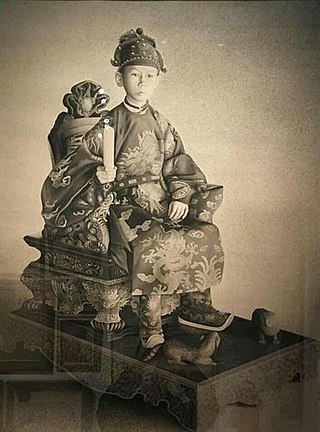 5
Emperor Duy Tân, born Nguyễn Phúc Vĩnh San, was the 11th emperor of the Nguyễn dynasty in Vietnam, who reigned for nine years between 1907 and 1916.
5
Emperor Duy Tân, born Nguyễn Phúc Vĩnh San, was the 11th emperor of the Nguyễn dynasty in Vietnam, who reigned for nine years between 1907 and 1916.
Cao Văn Thắng
 5
Cao Thắng was a Vietnamese anticolonial fighter. He was an assistant of Phan Đình Phùng, and was Phan's military coordinator. His forces operated in Thanh Hóa, Nghệ An and Hà Tĩnh provinces. He was...
5
Cao Thắng was a Vietnamese anticolonial fighter. He was an assistant of Phan Đình Phùng, and was Phan's military coordinator. His forces operated in Thanh Hóa, Nghệ An and Hà Tĩnh provinces. He was...
Lạc Long Quân
 5
Lạc Long Quân is an ancient king of the Hồng Bàng dynasty of ancient Vietnam. Quân was the son of Kinh Dương Vương, the king of Xích Quỷ. He is the main figure in the Vietnamese creation myth of Lạc...
5
Lạc Long Quân is an ancient king of the Hồng Bàng dynasty of ancient Vietnam. Quân was the son of Kinh Dương Vương, the king of Xích Quỷ. He is the main figure in the Vietnamese creation myth of Lạc...
Hàm Nghi
 5
Emperor Hàm Nghi, personal name Nguyễn Phúc Ưng Lịch, also Nguyễn Phúc Minh, was the eighth emperor of the Vietnamese Nguyễn dynasty. He reigned for only one year (1884–85).
5
Emperor Hàm Nghi, personal name Nguyễn Phúc Ưng Lịch, also Nguyễn Phúc Minh, was the eighth emperor of the Vietnamese Nguyễn dynasty. He reigned for only one year (1884–85).
Trần Huy Liệu
 5
Trần Huy Liệu là một nhà văn, nhà hoạt động cách mạng, nhà sử học, nhà báo Việt Nam. Ông từng giữ nhiều vị trí lãnh đạo cấp cao trong chính phủ đầu tiên của nước Việt Nam Dân chủ Cộng hòa. Ông là chủ...
5
Trần Huy Liệu là một nhà văn, nhà hoạt động cách mạng, nhà sử học, nhà báo Việt Nam. Ông từng giữ nhiều vị trí lãnh đạo cấp cao trong chính phủ đầu tiên của nước Việt Nam Dân chủ Cộng hòa. Ông là chủ...
Tô Hiến Thành
 5
Tô Hiến Thành was an official in the royal court of Lý Anh Tông and Lý Cao Tông, the sixth and seventh emperors of the Lý dynasty. Being a capable official of Lý Anh Tông who helped the emperor in...
5
Tô Hiến Thành was an official in the royal court of Lý Anh Tông and Lý Cao Tông, the sixth and seventh emperors of the Lý dynasty. Being a capable official of Lý Anh Tông who helped the emperor in...
Võ Văn Tần
 5
Võ Văn Tần was a Vietnamese revolutionary and a senior leader of the Indochina Communist Party during the period 1930-1940. He was executed by French firing squad at the Giồng T-road junction in Hóc...
5
Võ Văn Tần was a Vietnamese revolutionary and a senior leader of the Indochina Communist Party during the period 1930-1940. He was executed by French firing squad at the Giồng T-road junction in Hóc...
Nguyễn Trung Trực
 5
Nguyễn Trung Trực, born Nguyễn Văn Lịch, was a Vietnamese fisherman who organized and led village militia forces which fought against French colonial forces in the Mekong Delta in southern Vietnam in...
5
Nguyễn Trung Trực, born Nguyễn Văn Lịch, was a Vietnamese fisherman who organized and led village militia forces which fought against French colonial forces in the Mekong Delta in southern Vietnam in...
Trần Cao Vân
 4
Trần Cao Vân was a mandarin of the Nguyễn dynasty who was best known for his activities in attempting to expel the French colonial powers in Vietnam. He orchestrated an attempt to expel the French...
4
Trần Cao Vân was a mandarin of the Nguyễn dynasty who was best known for his activities in attempting to expel the French colonial powers in Vietnam. He orchestrated an attempt to expel the French...
Louis Pasteur
 4
Louis Pasteur was a French chemist, pharmacist, and microbiologist renowned for his discoveries of the principles of vaccination, microbial fermentation, and pasteurization, the last of which was...
4
Louis Pasteur was a French chemist, pharmacist, and microbiologist renowned for his discoveries of the principles of vaccination, microbial fermentation, and pasteurization, the last of which was...
Trần Nhân Tông
 4
Trần Nhân Tông, personal name Trần Khâm, temple name Nhân Tông, was the third emperor of the Trần dynasty, reigning over Đại Việt from 1278 to 1293. After ceding the throne to his son Trần Anh Tông,...
4
Trần Nhân Tông, personal name Trần Khâm, temple name Nhân Tông, was the third emperor of the Trần dynasty, reigning over Đại Việt from 1278 to 1293. After ceding the throne to his son Trần Anh Tông,...
Lê Trọng Tấn
 4
General Lê Trọng Tấn was an officer of the People's Army of Vietnam (PAVN) during 1945 to 1986. During this period of his military career, Lê Trọng Tấn held several senior positions of the Army. Lê...
4
General Lê Trọng Tấn was an officer of the People's Army of Vietnam (PAVN) during 1945 to 1986. During this period of his military career, Lê Trọng Tấn held several senior positions of the Army. Lê...
Phan Đăng Lưu
 4
Phan Đăng Lưu was a prominent 20th century Vietnamese revolutionary, politician, intellectual and journalist.
4
Phan Đăng Lưu was a prominent 20th century Vietnamese revolutionary, politician, intellectual and journalist.
Tô Hiệu
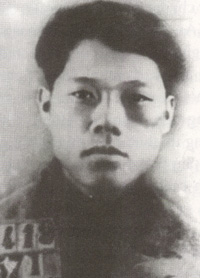 4
Tô Hiệu là một nhà cách mạng cộng sản Việt Nam.
4
Tô Hiệu là một nhà cách mạng cộng sản Việt Nam.
Trần Nguyên Hãn
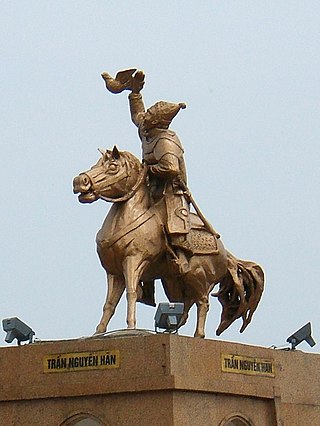 4
Trần Nguyên Hãn là nhà quân sự Đại Việt thời Trần - Lê sơ. Ông là người thuộc dòng dõi nhà Trần, nổi bật với việc tham gia khởi nghĩa Lam Sơn do Lê Lợi lãnh đạo chống sự đô hộ của đế quốc Minh. Ông...
4
Trần Nguyên Hãn là nhà quân sự Đại Việt thời Trần - Lê sơ. Ông là người thuộc dòng dõi nhà Trần, nổi bật với việc tham gia khởi nghĩa Lam Sơn do Lê Lợi lãnh đạo chống sự đô hộ của đế quốc Minh. Ông...
Nguyễn Hữu Thọ
 4
Nguyễn Hữu Thọ was a Vietnamese revolutionary and Chairman of Consultative Council of the National Liberation Front of South Vietnam from 6 June 1969 to 2 July 1976, and the Chairman of the National...
4
Nguyễn Hữu Thọ was a Vietnamese revolutionary and Chairman of Consultative Council of the National Liberation Front of South Vietnam from 6 June 1969 to 2 July 1976, and the Chairman of the National...
Xuân Thủy
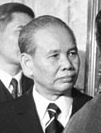 4
Xuân Thủy was a Vietnamese political figure. He was the Foreign Minister of North Vietnam from 1963 to 1965 and then chief negotiator of the North Vietnamese at the Paris Peace talks.
4
Xuân Thủy was a Vietnamese political figure. He was the Foreign Minister of North Vietnam from 1963 to 1965 and then chief negotiator of the North Vietnamese at the Paris Peace talks.
Dương Đình Nghệ
 4
Dương Đình Nghệ was the jiedushi of Tĩnh Hải quân in around 931 AD.
4
Dương Đình Nghệ was the jiedushi of Tĩnh Hải quân in around 931 AD.
Phạm Hùng
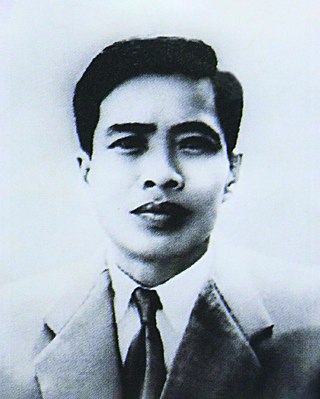 4
Phạm Hùng was a Vietnamese politician and the 2nd Prime Minister of the Government of the Socialist Republic of Vietnam from 1987 to 1988.
4
Phạm Hùng was a Vietnamese politician and the 2nd Prime Minister of the Government of the Socialist Republic of Vietnam from 1987 to 1988.
Nguyễn Hữu Huân
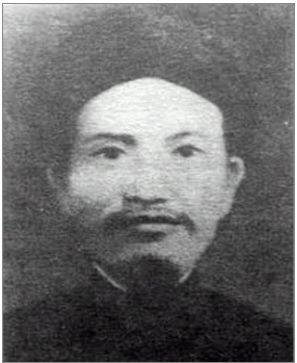 4
Nguyễn Hữu Huân là một sĩ phu yêu nước và là một lãnh tụ khởi nghĩa chống thực dân Pháp ở Nam Kỳ vào nửa cuối thế kỷ 19. Ông được biết nhiều qua biệt danh Thủ khoa Huân.
4
Nguyễn Hữu Huân là một sĩ phu yêu nước và là một lãnh tụ khởi nghĩa chống thực dân Pháp ở Nam Kỳ vào nửa cuối thế kỷ 19. Ông được biết nhiều qua biệt danh Thủ khoa Huân.
Tô Ngọc Vân
 4
Tô Ngọc Vân, also known as Tô Tử, was a Vietnamese painter. Several of his paintings are being displayed at the Vietnam National Museum of Fine Arts. He taught a resistance art class in the northern...
4
Tô Ngọc Vân, also known as Tô Tử, was a Vietnamese painter. Several of his paintings are being displayed at the Vietnam National Museum of Fine Arts. He taught a resistance art class in the northern...
Tạ Quang Bửu
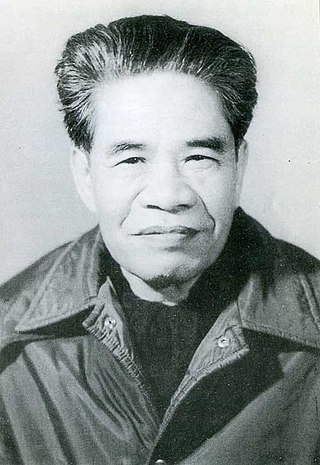 4
Tạ Quang Bửu (1910–1986) là giáo sư, nhà khoa học Việt Nam, người đặt nền móng cho lĩnh vực khoa học kỹ thuật và công nghệ quân sự Việt Nam, nguyên Bộ trưởng Bộ Quốc phòng và Bộ Đại học và Trung học...
4
Tạ Quang Bửu (1910–1986) là giáo sư, nhà khoa học Việt Nam, người đặt nền móng cho lĩnh vực khoa học kỹ thuật và công nghệ quân sự Việt Nam, nguyên Bộ trưởng Bộ Quốc phòng và Bộ Đại học và Trung học...
Hải Thượng Lãn Ông
 4
Lê Hữu Trác or alias Hải Thượng Lãn Ông (海上懶翁), was an 18th-century Vietnamese physician who was the best known and most celebrated doctor in Vietnamese history. Hữu Trác was conscripted into the...
4
Lê Hữu Trác or alias Hải Thượng Lãn Ông (海上懶翁), was an 18th-century Vietnamese physician who was the best known and most celebrated doctor in Vietnamese history. Hữu Trác was conscripted into the...
Lê Lai
 4
Lê Lai was a subordinate commander of Lê Lợi's army during the Lam Sơn uprising against Ming Rule in Vietnam from 1418 to 1427. He is known for sacrificing himself to help Lê Lợi and the Vietnamese...
4
Lê Lai was a subordinate commander of Lê Lợi's army during the Lam Sơn uprising against Ming Rule in Vietnam from 1418 to 1427. He is known for sacrificing himself to help Lê Lợi and the Vietnamese...
Xuân Diệu
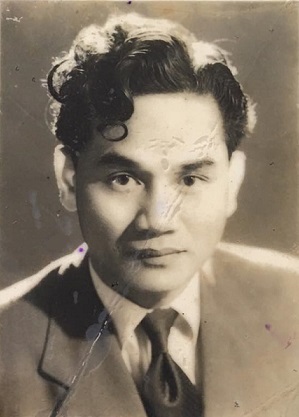 4
Ngô Xuân Diệu was a Vietnamese poet, journalist, short-story writer, and literary critic, best known as one of the prominent figures of the twentieth-century Thơ mới Movement. Heralded by critics as...
4
Ngô Xuân Diệu was a Vietnamese poet, journalist, short-story writer, and literary critic, best known as one of the prominent figures of the twentieth-century Thơ mới Movement. Heralded by critics as...
Tô Vĩnh Diện
 4
Tô Vĩnh Diện was a soldier in the Việt Minh during the First Indochina War against France in Vietnam. Dien was proclaimed a national hero by the Việt Minh after his death in the period leading up to...
4
Tô Vĩnh Diện was a soldier in the Việt Minh during the First Indochina War against France in Vietnam. Dien was proclaimed a national hero by the Việt Minh after his death in the period leading up to...
Tran Bach Dang
 4
Trần Bạch Đằng was a key figure in planning the 1968 Tet Offensive during the Vietnam War, and was the leader of Communist forces in Saigon, the South Vietnamese capital, during that offensive. He...
4
Trần Bạch Đằng was a key figure in planning the 1968 Tet Offensive during the Vietnam War, and was the leader of Communist forces in Saigon, the South Vietnamese capital, during that offensive. He...
Nguyễn Thị Thập
 4
Nguyễn Thị Thập was a Vietnamese revolutionary and politician. She was a deputy to the National Assembly and President of the Vietnam Women's Union, the oldest (1956–1974). She is also the first...
4
Nguyễn Thị Thập was a Vietnamese revolutionary and politician. She was a deputy to the National Assembly and President of the Vietnam Women's Union, the oldest (1956–1974). She is also the first...
Đội Cấn
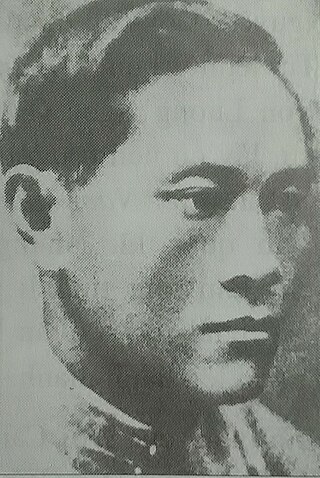 4
Đội Cấn, hay Ông Đội Cấn là biệt danh của Trịnh Văn Cấn, một thủ lĩnh trong cuộc binh biến chống chính quyền thực dân Pháp tại Thái Nguyên năm 1917.
4
Đội Cấn, hay Ông Đội Cấn là biệt danh của Trịnh Văn Cấn, một thủ lĩnh trong cuộc binh biến chống chính quyền thực dân Pháp tại Thái Nguyên năm 1917.
Nguyễn Duy Trinh
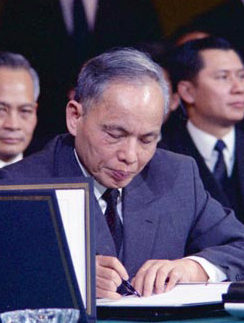 4
Nguyễn Duy Trinh là một chính khách Việt Nam. Ông nguyên là
Ủy viên Bộ Chính trị, Bí thư Ban Chấp hành Trung ương Đảng Cộng sản Việt Nam, Ủy viên Ban Chấp hành Trung ương Đảng Cộng sản Việt Nam, Phó...
4
Nguyễn Duy Trinh là một chính khách Việt Nam. Ông nguyên là
Ủy viên Bộ Chính trị, Bí thư Ban Chấp hành Trung ương Đảng Cộng sản Việt Nam, Ủy viên Ban Chấp hành Trung ương Đảng Cộng sản Việt Nam, Phó...
N'Trang Lơng
 4
N'Trang Lơng là tù trưởng người dân tộc M'Nông, nổi dậy kháng chiến chống Pháp ở Nam Tây Nguyên suốt 24 năm đầu thế kỷ 20 (1911-1935).
4
N'Trang Lơng là tù trưởng người dân tộc M'Nông, nổi dậy kháng chiến chống Pháp ở Nam Tây Nguyên suốt 24 năm đầu thế kỷ 20 (1911-1935).
Nguyễn Bỉnh Khiêm
 4
Nguyễn Bỉnh Khiêm was a Vietnamese administrator, confucianist, poet, prophet and later a saint of the Cao Dai religion and of the new religious movement known as School of Teaching Goodness.
4
Nguyễn Bỉnh Khiêm was a Vietnamese administrator, confucianist, poet, prophet and later a saint of the Cao Dai religion and of the new religious movement known as School of Teaching Goodness.
Nguyễn Khánh Toàn
 3
Giáo sư, Viện sĩ Nguyễn Khánh Toàn (1905-1993) là một nhà giáo, nhà khoa học Việt Nam. Ông đã đóng góp nhiều công sức xây dựng nền Giáo dục Việt Nam và nền Khoa học Xã hội Việt Nam từ sau Cách mạng...
3
Giáo sư, Viện sĩ Nguyễn Khánh Toàn (1905-1993) là một nhà giáo, nhà khoa học Việt Nam. Ông đã đóng góp nhiều công sức xây dựng nền Giáo dục Việt Nam và nền Khoa học Xã hội Việt Nam từ sau Cách mạng...
Cao Bá Quát
 3
Cao Bá Quát was a Vietnamese poet and revolutionary who led a peasant uprising against Emperor Tự Đức. He was either executed or killed in battle. Many of his poems were destroyed, but about 1400...
3
Cao Bá Quát was a Vietnamese poet and revolutionary who led a peasant uprising against Emperor Tự Đức. He was either executed or killed in battle. Many of his poems were destroyed, but about 1400...
Nguyễn Đức Thuận
 3
Nguyễn Đức Thuận có tên khai sinh là Bùi Phong Tư là nhà cách mạng Việt Nam, nguyên là Phó Bí thư Xứ ủy Nam Bộ, Ủy viên Ban Chấp hành Trung ương Đảng Cộng sản Việt Nam, Chủ tịch Tổng Liên đoàn Lao...
3
Nguyễn Đức Thuận có tên khai sinh là Bùi Phong Tư là nhà cách mạng Việt Nam, nguyên là Phó Bí thư Xứ ủy Nam Bộ, Ủy viên Ban Chấp hành Trung ương Đảng Cộng sản Việt Nam, Chủ tịch Tổng Liên đoàn Lao...
Huỳnh Mẫn Đạt
 3
Huỳnh Mẫn Đạt, còn gọi là Tuần Phủ Đạt, là quan nhà Nguyễn và là nhà thơ ở thế kỷ 19 tại Nam Bộ, Việt Nam.
3
Huỳnh Mẫn Đạt, còn gọi là Tuần Phủ Đạt, là quan nhà Nguyễn và là nhà thơ ở thế kỷ 19 tại Nam Bộ, Việt Nam.
Huỳnh Tấn Phát
 3
Huỳnh Tấn Phát was a Vietnamese architect, politician and revolutionary. He was the Prime Minister and de facto leader of the Provisional Revolutionary Government of South Vietnam during the Vietnam...
3
Huỳnh Tấn Phát was a Vietnamese architect, politician and revolutionary. He was the Prime Minister and de facto leader of the Provisional Revolutionary Government of South Vietnam during the Vietnam...
Ông Ích Khiêm
 3
Ông Ích Khiêm tự Mục Chi, là danh tướng nhà Nguyễn trong lịch sử Việt Nam.
3
Ông Ích Khiêm tự Mục Chi, là danh tướng nhà Nguyễn trong lịch sử Việt Nam.
Mạc Thị Bưởi
 3
Mạc Thị Bưởi (1927–1951) was one of the people rewarded the title of Hero of the Vietnamese People's Armed Forces in the first time in 1955 by the Government of the Democratic Republic of...
3
Mạc Thị Bưởi (1927–1951) was one of the people rewarded the title of Hero of the Vietnamese People's Armed Forces in the first time in 1955 by the Government of the Democratic Republic of...
Nguyễn Xiển
 3
Nguyễn Xiển (27/7/1907–1997), đồng thời cũng là một chính khách Việt Nam. Ông từng giữ chức vụ Tổng Thư ký Đảng Xã hội Việt Nam (1956–1988) và Phó Chủ tịch Ủy ban Thường vụ Quốc hội Việt Nam.
3
Nguyễn Xiển (27/7/1907–1997), đồng thời cũng là một chính khách Việt Nam. Ông từng giữ chức vụ Tổng Thư ký Đảng Xã hội Việt Nam (1956–1988) và Phó Chủ tịch Ủy ban Thường vụ Quốc hội Việt Nam.
Nguyễn Kiệm
 3
Nguyễn Kiệm (1916-1951) là một nhà cách mạng Việt Nam nửa đầu thế kỷ 20.
3
Nguyễn Kiệm (1916-1951) là một nhà cách mạng Việt Nam nửa đầu thế kỷ 20.
Đào Duy Anh
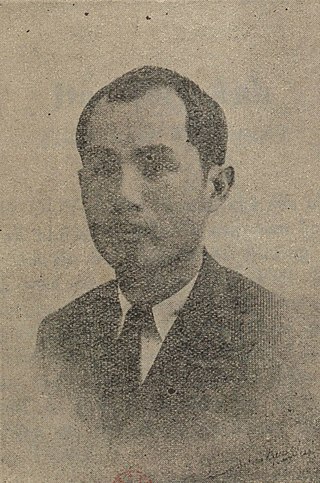 3
Đào Duy Anh was a Vietnamese historian and lexicographer. He was born in Thanh Oai, Hà Tây, now, Hanoi. He was one of the writers associated with the Nhân Văn-Giai Phẩm affair. He was the general...
3
Đào Duy Anh was a Vietnamese historian and lexicographer. He was born in Thanh Oai, Hà Tây, now, Hanoi. He was one of the writers associated with the Nhân Văn-Giai Phẩm affair. He was the general...
Nguyễn Siêu
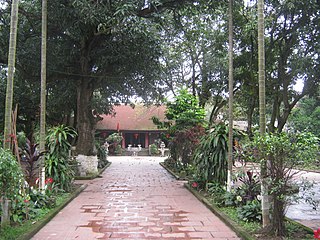 3
Nguyễn Siêu hiệu Nguyễn Hữu Công (阮右公) là một sứ quân nổi dậy thời loạn 12 sứ quân trong lịch sử Việt Nam thế kỷ 10. Ông vốn là người gốc Trung Hoa, cát cứ ở Thanh Trì để xây dựng lực lượng và trở...
3
Nguyễn Siêu hiệu Nguyễn Hữu Công (阮右公) là một sứ quân nổi dậy thời loạn 12 sứ quân trong lịch sử Việt Nam thế kỷ 10. Ông vốn là người gốc Trung Hoa, cát cứ ở Thanh Trì để xây dựng lực lượng và trở...
Vũ Tông Phan
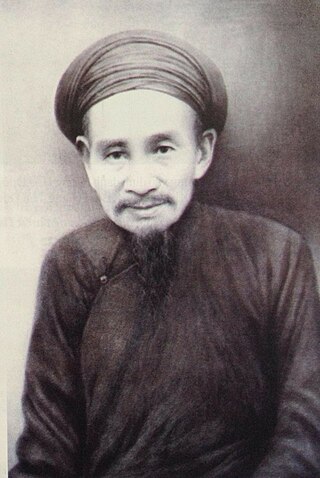 3
Vũ Tông Phan, tự Hoán Phủ, hiệu Lỗ Am, Đường Xuyên, là danh sĩ, nhà giáo đời nhà Nguyễn.
3
Vũ Tông Phan, tự Hoán Phủ, hiệu Lỗ Am, Đường Xuyên, là danh sĩ, nhà giáo đời nhà Nguyễn.
Trần Đại Nghĩa
 3
Trần Đại Nghĩa was a Vietnamese scientist, military engineer, and prominent figure in the defense industry of Vietnam. He was a major-general and an academician. He was awarded the Order of Ho Chi...
3
Trần Đại Nghĩa was a Vietnamese scientist, military engineer, and prominent figure in the defense industry of Vietnam. He was a major-general and an academician. He was awarded the Order of Ho Chi...
Lê Thanh Nghị
 3
Lê Thanh Nghị (1911-1989) tên thật là Nguyễn Khắc Xứng, là một chính khách Việt Nam. Ông từng giữ chức Phó Thủ tướng của Việt Nam từ năm 1960 đến 1980, Phó chủ tịch kiêm Tổng thư ký Hội đồng Nhà nước...
3
Lê Thanh Nghị (1911-1989) tên thật là Nguyễn Khắc Xứng, là một chính khách Việt Nam. Ông từng giữ chức Phó Thủ tướng của Việt Nam từ năm 1960 đến 1980, Phó chủ tịch kiêm Tổng thư ký Hội đồng Nhà nước...
Thoại Ngọc Hầu
 3
Nguyễn Văn Thoại, Marquis of Thoại Ngọc, was a Vietnamese military administrator of the Nguyễn dynasty.
3
Nguyễn Văn Thoại, Marquis of Thoại Ngọc, was a Vietnamese military administrator of the Nguyễn dynasty.
Nguyễn Văn Hưởng (thượng tướng)
 3
Nguyễn Văn Hưởng là Thượng tướng Công an nhân dân Việt Nam, nguyên Thứ trưởng Bộ Công an, nguyên Tổng cục trưởng Tổng cục An ninh trước khi chuyển sang làm Phái viên Tư vấn cho Thủ tướng Nguyễn Tấn...
3
Nguyễn Văn Hưởng là Thượng tướng Công an nhân dân Việt Nam, nguyên Thứ trưởng Bộ Công an, nguyên Tổng cục trưởng Tổng cục An ninh trước khi chuyển sang làm Phái viên Tư vấn cho Thủ tướng Nguyễn Tấn...
Trần Nhật Duật
 3
Prince Chiêu Văn Trần Nhật Duật (1255–1330) was the sixth son of Trần Thái Tông, first emperor of Trần Dynasty. Being younger brother of the Emperor Trần Thánh Tông, Trần Nhật Duật was one of the...
3
Prince Chiêu Văn Trần Nhật Duật (1255–1330) was the sixth son of Trần Thái Tông, first emperor of Trần Dynasty. Being younger brother of the Emperor Trần Thánh Tông, Trần Nhật Duật was one of the...
Mai Chí Thọ
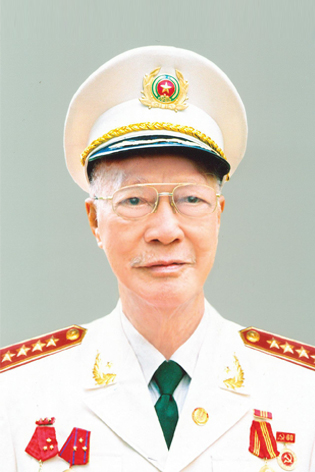 3
Mai Chí Thọ, tên thật là Phan Đình Đống, bí danh Năm Xuân, Tám Cao, là Đại tướng Công an nhân dân Việt Nam đầu tiên, nguyên Bộ trưởng Bộ Nội vụ từ 1986 đến 1991.
3
Mai Chí Thọ, tên thật là Phan Đình Đống, bí danh Năm Xuân, Tám Cao, là Đại tướng Công an nhân dân Việt Nam đầu tiên, nguyên Bộ trưởng Bộ Nội vụ từ 1986 đến 1991.
Sun Yat-sen
 3
Sun Yat-sen was a Chinese revolutionary statesman, physician, and political philosopher who served as the first provisional president of the Republic of China and the first leader of the Kuomintang....
3
Sun Yat-sen was a Chinese revolutionary statesman, physician, and political philosopher who served as the first provisional president of the Republic of China and the first leader of the Kuomintang....
Lương Thế Vinh
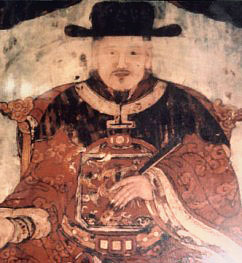 3
Lương Thế Vinh (1441–1496) was an prominent Vietnamese scholar and mathematician of the fifteenth century.
3
Lương Thế Vinh (1441–1496) was an prominent Vietnamese scholar and mathematician of the fifteenth century.
Ung Văn Khiêm
 3
Ung Văn Khiêm (1910–1991) là một nhà cách mạng và chính trị gia người Việt Nam. Ông từng giữ các chức vụ cao cấp trong chính phủ Việt Nam Dân chủ Cộng hòa như Bộ trưởng Bộ Ngoại giao từ tháng 2 năm...
3
Ung Văn Khiêm (1910–1991) là một nhà cách mạng và chính trị gia người Việt Nam. Ông từng giữ các chức vụ cao cấp trong chính phủ Việt Nam Dân chủ Cộng hòa như Bộ trưởng Bộ Ngoại giao từ tháng 2 năm...
Lê Văn Việt (quân nhân)
 3
Lê Văn Việt, tức Tư Việt, còn gọi là Nguyễn Văn Hai hay Ba Thợ Mộc, là anh hùng Lực lượng vũ trang nhân dân, đảng viên Đảng Cộng sản Việt Nam.
3
Lê Văn Việt, tức Tư Việt, còn gọi là Nguyễn Văn Hai hay Ba Thợ Mộc, là anh hùng Lực lượng vũ trang nhân dân, đảng viên Đảng Cộng sản Việt Nam.
Lý Thánh Tông
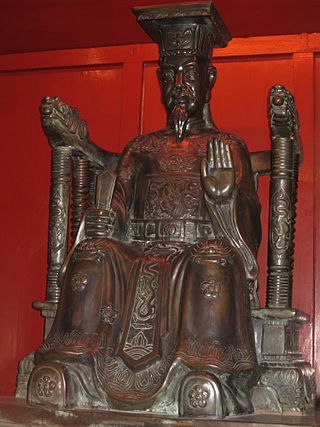 3
Lý Thánh Tông, personal name Lý Nhật Tôn, temple name Thánh Tông, was the third emperor of the Lý dynasty and the 8th ruler of the Vietnamese kingdom Đại Việt. In his reign, Lý Thánh Tông promoted...
3
Lý Thánh Tông, personal name Lý Nhật Tôn, temple name Thánh Tông, was the third emperor of the Lý dynasty and the 8th ruler of the Vietnamese kingdom Đại Việt. In his reign, Lý Thánh Tông promoted...
Trần Xuân Soạn
 3
Trần Xuân Soạn, là tướng nhà Nguyễn trong lịch sử Việt Nam. Đầu tháng 4 năm 1885, thời vua Hàm Nghi, ông cùng tướng Tôn Thất Thuyết đánh Pháp đóng ở đồn Mang Cá trong trận Kinh thành Huế. Sau khi...
3
Trần Xuân Soạn, là tướng nhà Nguyễn trong lịch sử Việt Nam. Đầu tháng 4 năm 1885, thời vua Hàm Nghi, ông cùng tướng Tôn Thất Thuyết đánh Pháp đóng ở đồn Mang Cá trong trận Kinh thành Huế. Sau khi...
Quốc Hương
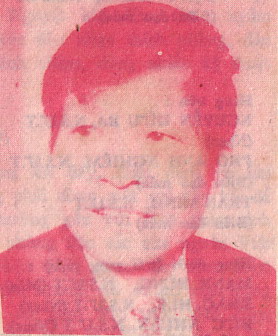 3
Quốc Hương là một ca sĩ nhạc đỏ thế hệ đầu tiên. Ông được coi là một trong những giọng ca lớn nhất của nền tân nhạc cách mạng Việt Nam. Ngoài ra Quốc Hương còn là nhạc sĩ với những ca khúc như Tầm...
3
Quốc Hương là một ca sĩ nhạc đỏ thế hệ đầu tiên. Ông được coi là một trong những giọng ca lớn nhất của nền tân nhạc cách mạng Việt Nam. Ngoài ra Quốc Hương còn là nhạc sĩ với những ca khúc như Tầm...
Nguyễn Cảnh Chân
 3
Nguyễn Cảnh Chân was a prominent general who fought against the Ming dynasty of the Later Trần dynasty. He was born in Ngọc Sơn village, Thanh Chương district, Nghệ An province, Vietnam.
3
Nguyễn Cảnh Chân was a prominent general who fought against the Ming dynasty of the Later Trần dynasty. He was born in Ngọc Sơn village, Thanh Chương district, Nghệ An province, Vietnam.
Ngô Đức Kế
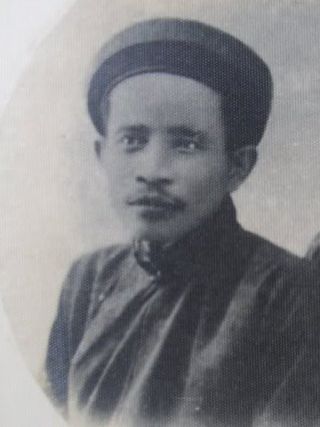 3
Ngô Đức Kế (1878–1929), courtesy name Tập Xuyên, was a prominent scholar-gentry Vietnamese anti-colonial intellectual in the early 20th century. He was a key member of Duy Tân Hội as well as its...
3
Ngô Đức Kế (1878–1929), courtesy name Tập Xuyên, was a prominent scholar-gentry Vietnamese anti-colonial intellectual in the early 20th century. He was a key member of Duy Tân Hội as well as its...
Hải Triều
 3
Hai Trieu, real name Nguyen Khoa Van, was a Vietnamese journalist, Marxist theorist, literary critic. He was a pioneering theorist in Vietnam's revolutionary journalism, especially through two...
3
Hai Trieu, real name Nguyen Khoa Van, was a Vietnamese journalist, Marxist theorist, literary critic. He was a pioneering theorist in Vietnam's revolutionary journalism, especially through two...
Hà Huy Tập
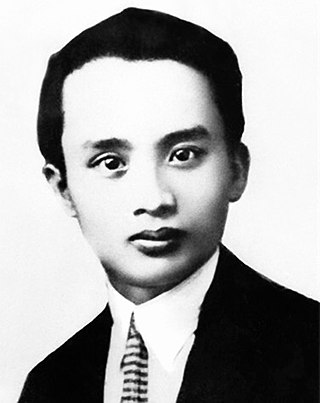 3
Hà Huy Tập was a Vietnamese revolutionary and the third General Secretary of the Central Committee of the Communist Party of Vietnam (CPV).
3
Hà Huy Tập was a Vietnamese revolutionary and the third General Secretary of the Central Committee of the Communist Party of Vietnam (CPV).
Nguyễn Kim
 3
Nguyen Kim was a Vietnamese statesman who was the ancestor of the famous Nguyễn Lords who later ruled south Vietnam. During his rule, the war with the Mạc dynasty started.
3
Nguyen Kim was a Vietnamese statesman who was the ancestor of the famous Nguyễn Lords who later ruled south Vietnam. During his rule, the war with the Mạc dynasty started.
Lê Văn Hiến
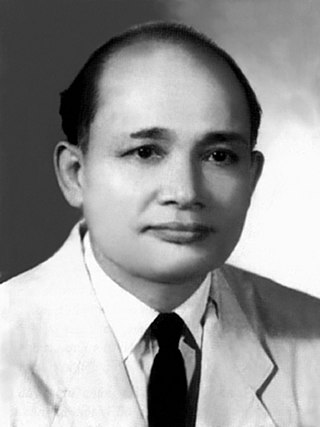 3
Lê Văn Hiến là nhà cách mạng, chính trị gia, nguyên Bộ trưởng Bộ Tài chính và Bộ Lao động Việt Nam Dân chủ Cộng hòa, Đại biểu Quốc hội khóa I, II, III. Ông cũng là Đại sứ Đặc mệnh toàn quyền đầu tiên...
3
Lê Văn Hiến là nhà cách mạng, chính trị gia, nguyên Bộ trưởng Bộ Tài chính và Bộ Lao động Việt Nam Dân chủ Cộng hòa, Đại biểu Quốc hội khóa I, II, III. Ông cũng là Đại sứ Đặc mệnh toàn quyền đầu tiên...
Lương Định Của
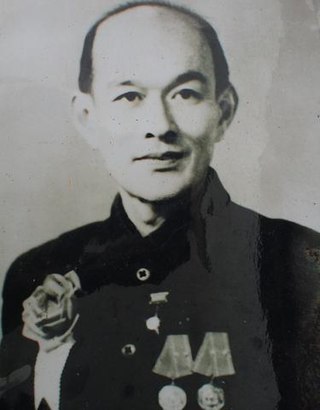 3
Lương Định Của là giáo sư nông học, nhà tạo giống cây trồng, người có đóng góp to lớn cho nền nông nghiệp Việt Nam. Sinh ra tại Sóc Trăng, từ năm 1967-1975, ông là Viện trưởng Viện Cây lương thực và...
3
Lương Định Của là giáo sư nông học, nhà tạo giống cây trồng, người có đóng góp to lớn cho nền nông nghiệp Việt Nam. Sinh ra tại Sóc Trăng, từ năm 1967-1975, ông là Viện trưởng Viện Cây lương thực và...
Phạm Hữu Lầu
 3
Phạm Hữu Lầu là người đảng viên Đảng Cộng sản Việt Nam đầu tiên tại tỉnh Đồng Tháp.
3
Phạm Hữu Lầu là người đảng viên Đảng Cộng sản Việt Nam đầu tiên tại tỉnh Đồng Tháp.
Nguyễn Cư Trinh
 3
Nguyễn Cư Trinh (1716–1767): His original name is Nguyễn Đăng Nghi, Courtesy name is Cư Trinh, [Pen name] are Đạm Am, Đường Qua and Hạo Nhiên, title is Nghi Biểu Hầu (儀表侯), then was given another...
3
Nguyễn Cư Trinh (1716–1767): His original name is Nguyễn Đăng Nghi, Courtesy name is Cư Trinh, [Pen name] are Đạm Am, Đường Qua and Hạo Nhiên, title is Nghi Biểu Hầu (儀表侯), then was given another...
Nguyên Hồng
 3
Nguyên Hồng (1918–1982), tên khai sinh Nguyễn Nguyên Hồng, là một nhà văn, nhà thơ Việt Nam.
3
Nguyên Hồng (1918–1982), tên khai sinh Nguyễn Nguyên Hồng, là một nhà văn, nhà thơ Việt Nam.
Hoàng Văn Thái
 3
Hoàng Văn Thái, born Hoàng Văn Xiêm, was a Vietnamese Army General and a communist political figure. His hometown was Tây An, Tiền Hải District, Thái Bình Province. During the Tết Offensive, he was...
3
Hoàng Văn Thái, born Hoàng Văn Xiêm, was a Vietnamese Army General and a communist political figure. His hometown was Tây An, Tiền Hải District, Thái Bình Province. During the Tết Offensive, he was...
Đặng Thùy Trâm
 3
Đặng Thùy Trâm was a Vietnamese doctor. She worked as a battlefield surgeon for the People's Army of Vietnam and Vietcong during the Vietnam War. Her wartime diaries, which chronicle the last two...
3
Đặng Thùy Trâm was a Vietnamese doctor. She worked as a battlefield surgeon for the People's Army of Vietnam and Vietcong during the Vietnam War. Her wartime diaries, which chronicle the last two...